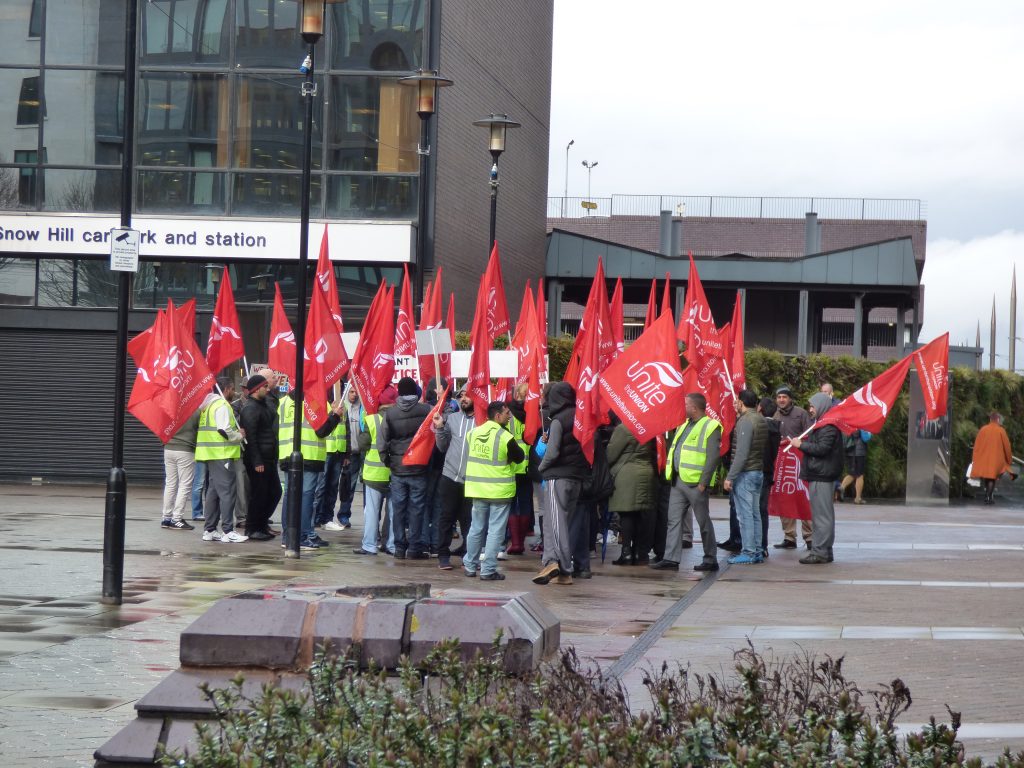Sharon Graham was one of the most left-wing candidates in the leadership race.
The trade union Unite represents 1.4 million British workers. It advocates for better working conditions in a variety of different industries, including the public service, finance and manufacturing sectors. It is also the Labour Party’s biggest donor. Unite therefore has a lot of influence. Which is why people are now wondering how its newly-elected leader, Sharon Graham, might decide to use that influence, and how her choice might impact working life in Britain going forward.
Trade unions are an important part of the debate about power and fairness in the workplace. This issue exists because bosses and workers usually have at least some goals that are not just different but actively conflicting. For example, bosses often want to pay lower wages than employees want to earn. So how should wages be set? Traditional economic theory says that the best way of doing things is through the passive force of supply (here how many workers there are) and demand (how much work bosses want done).
When supply is higher than demand, bosses will hold more power, because the workers have to compete with each other to get the job. They may therefore undercut their competitors' salaries to give themselves an edge. But when demand is higher than supply, the power flips: now bosses are competing to attract workers, so they may have to raise their wages to make their job more desirable. Importantly, traditional economics also believes that supply and demand naturally even out over time. The thinking goes something like this: If workers are plentiful and therefore cheap, bosses will go on a hiring spree, causing the supply of workers to drop. And if workers for a particular area/industry are scarce and wages are high, it will attract lots of new workers in, causing the supply to swell.
But lots of people disagree that leaving supply and demand to do its thing in the labour market gives the best outcomes. They argue that in practice bosses almost always hold way more power than the majority of workers, and use this power to exploit them. Trade unions were set up to tip this power balance back towards workers by getting them to band together and make their demands as one.
Essentially, this eliminates a boss’ ability to use a high worker supply to their own advantage. Without Unions, as long as there are other suitable candidates for a job a boss has an alternative option whenever a single employee wants a concession such as higher pay: fire them and replace them with someone who is willing to settle for less. Trade unions make it so the boss is instead negotiating with the entire workforce - who they cannot afford to lose all at once.
Trade unions are credited with some of the now-standard working rights we probably all appreciate, such as weekends off and minimum wages. But they are also disliked by some. Obviously bosses can find them to be a headache, but they can also be a problem for customers (who are inconvenienced if a workplace goes on strike, and who have to pay higher prices if a company is spending more on wages or other benefits) and even some of their would-be members, who dislike having their autonomy curtailed.
Sharon Graham has a reputation for being both tenacious and successful when it comes to putting pressure on companies to divert more of their resources towards their workers. Assuming she brings this into Unite's work going forward, her approach is likely to win her both fans and adversaries.
Read our explainer on: unions.

